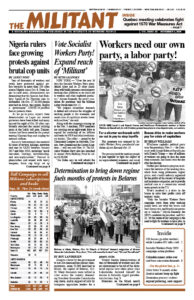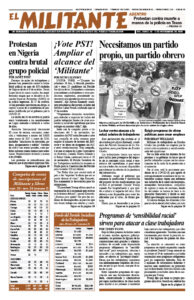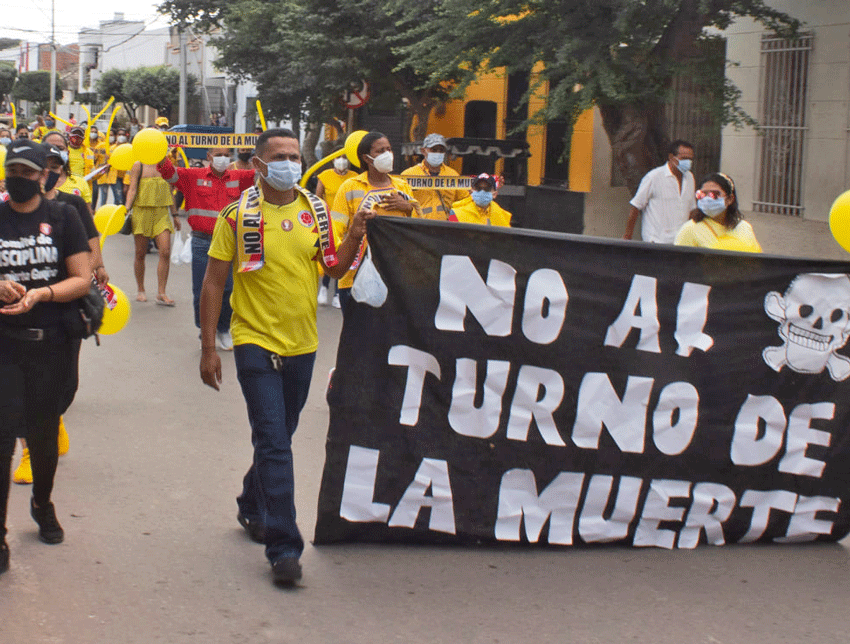Hundreds of miners, family members and supporters from indigenous, Afro-Colombian and other groups marched through the streets of Riohacha and several other towns in the Northeast region of Colombia Oct. 9 to support the strike at El Cerrejón open-pit coal mine.
Some 4,600 workers, members of the National Union of Coal Industry Workers (Sintracarbón), went on strike Aug. 31. The mine also employs some 900 nonunion workers on short-term contracts.
Union members voted 96.3% to strike after talks with the company collapsed. Among the issues are wages and company proposals to freeze health and other benefits. “The company wants to freeze the cost-of-living clause that guarantees that wages go up with inflation,” Daniel Morón, a heavy equipment operator at the mine and union press secretary, told the Militant by phone from Riohacha Oct. 17. Last year inflation on basic food prices rose at 5.8%.
Bosses are also refusing to make any of the short-term contract workers permanent, unlike they agreed to in previous contracts.
One of the biggest issues is the bosses’ unilateral decision to impose a new shift schedule, which miners are calling “the death shift.”
Miners current schedule involves working 15, 12-hour shifts a month with days off every few days. Bosses now demand the miners work 21, 12-hour shifts in the month, working a grueling seven days in a row before getting time off, with no increase in pay, other than a small differential for the night shift, Morón said. Even if the company offered higher wages, “we’re not willing to give up our health and safety for money,” he said.
The shift change “is not negotiable,” El Cerrejón President Claudia Bejarano told the press, claiming “it’s necessary to ensure the survival of the company,” citing the drop in world coal prices. “The union is demanding benefits as if there was no coal crisis and COVID-19 affected everyone except Cerrejón,” she added.
Some 1,250 permanent workers would lose their jobs, the union says. Bosses claim that “only” 600 to 700 would be laid off.
The job losses would be a big blow, Morón said. “There are not many other jobs in Guajira and it’s the department with the largest number of indigenous peoples” in one of the most impoverished regions of the country.
“The company wants to push the economic crisis onto the shoulders of the workers,” Morón said. “They want to produce more with fewer workers.”
El Cerrejón, one of the largest mines in South America, is jointly owned by three multinational companies, Anglo American, BHP and Glencore.
On Oct. 18, El Cerrejón bosses agreed to negotiate face to face for the first time since Aug. 7.
Messages of solidarity and contributions to the strike fund are needed, Morón said. Send messages to the union at sintracarbon@gmail.com.


